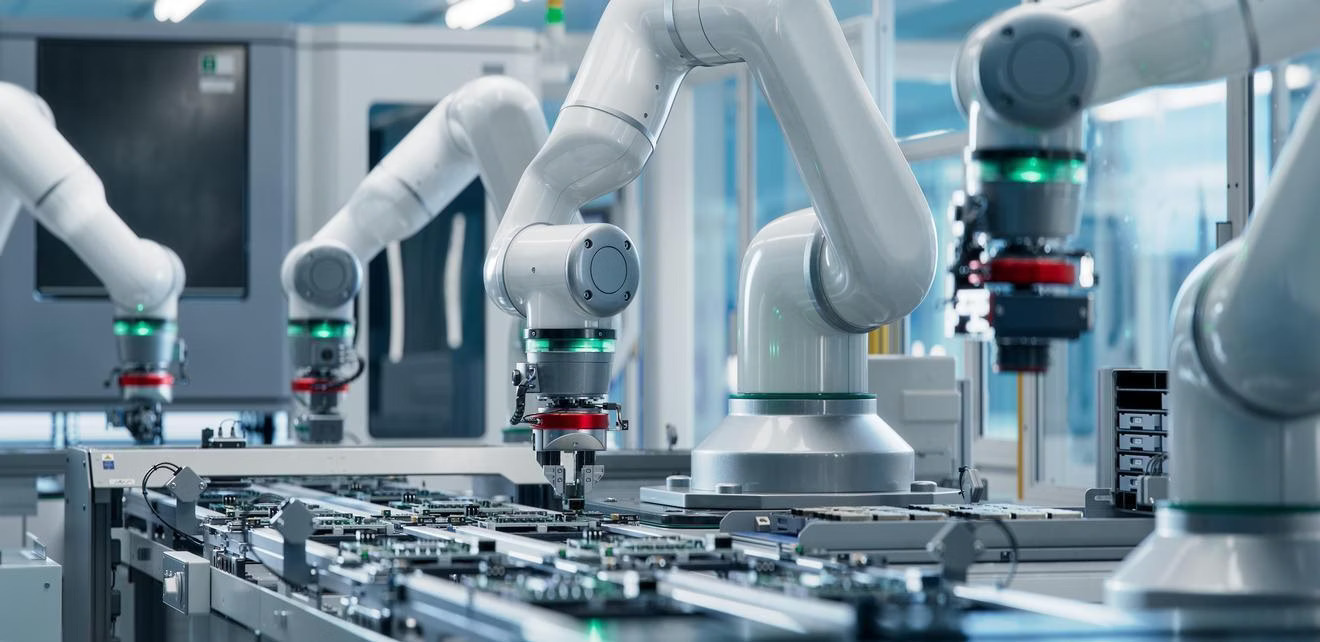The demand for automation and plant productivity is growing in today’s corporate climate. As a result, manufacturing is speedier and more automated, but additional time and effort costs are needed.
Automation is simply one of many systems in today’s manufacturing that has to be improved regularly. While using Industrial Internet of Things (IIoT) technologies has yielded benefits, a leaner organization continues.
IIoT is your best choice to provide your company with a competitive advantage. The advantages affect maintenance, supplier logistics, and staff workflows.
IIoT solution: Industry 4.0
Manufacturers have raised Industry 4.0 from shop floor method to business-led strategy while being buffeted by various shocks, including the pandemic, geopolitical crises, and trade disputes, to mention a few. While automation began in the factory, intelligence has sparked the next digitized revolution in industrial manufacturing in an ultra-dynamic market where anything can and does happen.
IIoT software is built up with Microsoft Azure or AWS cloud services or open-source IoT platforms to enable sensor data gathering and analytics, IIoT device communication, control, and administration.
An IIoT solution may help you decrease waste, shorten manufacturing cycle times, reduce operating costs, increase production quality, and get greater visibility into the manufacturing supply chain.
We ensure a seamless transition to Industry 4.0 Solutions by assuring the transformation of every section of the supply and manufacturing chain one step at a time.
The top five advantages of the Industrial Internet of Things
Manufacturers can gain the following advantages by utilizing IoT and advanced analytics technologies:
1. Increased productivity
The most significant benefit of IIoT is that it allows firms to automate and hence improve their operational efficiency. Robotics and automated technology may increase production and help firms simplify their processes by working more effectively and correctly.
Manufacturers can increase operating efficiency with IIoT-enabled data systems by:
- Automating and digitizing manual processes and functions
- Making data-driven decisions in all aspects of manufacturing
- Performance may be tracked from anywhere, whether the factory floor or a beach.
2. Boost safety
With all the IIoT sensors working together to monitor workplace and employee safety, “smart manufacturing” also enables “smart security.”
Workers on the floor, on the line, and in distribution are all protected by integrated safety measures. If an accident happens, everyone in the plant will be notified, activities will be halted, and corporate leadership will intervene to fix the situation. This incident may potentially yield helpful information that may be used to prevent similar incidents in the future.
Employees can also be notified if they are not following standard workplace safety protocols, allowing them to change their behavior and remain safe.
3. Boost quality assurance
Manufacturers used to maintain quality control on a reactive basis before the Internet of Things. If something went wrong with an item, it was up to the floor employees to spot it quickly.
Thanks to graphic work instructions, workers may easily collect and share best practices for adequate quality checks. Combining machine-equipped sensors with augmented reality and connecting technologies, the employees can detect and spot the issues from a control center and communicate with one another. They can then provide digital work instructions that promote more efficient worker outputs and minimize costly delays and waste.
4. Predictive Upkeep
Predictive maintenance for Industry 4.0 is a strategy for preventing asset failure by analyzing production data to find patterns and anticipate difficulties before they occur.
Condition-based maintenance alerts are possible when IIoT sensors and industrial equipment are combined. Temperature, humidity, and other atmospheric factors in the working environment are recorded. The composition of materials utilized and the influence of shipping container/vehicle environmental conditions on the product are recorded.
IoT sensors that can actively monitor temperature, vibrations, and other elements that cause poor operation conditions are a godsend for facility managers. Manufacturers may avoid asset failure, save costs, and reduce machine downtime by proactively monitoring machinery conditions.
Also Read – How Industrial IoT is Transforming the Businesses in 2022
5. Improve inventory management efficiency.
One of the most challenging aspects of inventory management is keeping enough products on the shelves to avoid running out or overstocking; this necessitates a scheduled reorder.
Complete inventory visibility allows for more precise estimations of available material, work-in-progress, and the projected arrival time of new supplies, resulting in a more efficient supply chain and lower costs.
IoT may also help with a collaborative approach to supply chain management. IoT allows supply chain managers to better detect interdependencies, control material flow, and fine-tune manufacturing cycle times by linking manufacturing facilities to suppliers.
Statistics
The IoT industry is expected to grow at a 28.5 per cent CAGR from $157 billion in 2016 to $457 billion by 2020. Three sub-domains will control the industry’s market share: Smart Cities (26%), Industrial (24%), and Connected Health (20%). Smart Homes will account for 14%, Connected Cars for 7%, Smart Utilities for 4%, and Wearables for 3%.
Conclusion
While it’s thrilling to speculate about how technology may evolve, individual innovations are unlikely to disrupt Industry 4.0’s advanced manufacturing methods entirely. IoT technology has already provided cost savings and productivity gains in this regard. Combining IoT with blockchain’s safe transaction architecture and 5G’s ubiquitous speed and network capacity may be the killer app Industrial IoT requires.
Implementing a system infused with Industrial IoT systems can be overwhelming and it’s a complex process, but not for us at Rejig Digital. Our customized IIoT solutions for manufacturers will help improve performance, build a system for predictive maintenance, assure quality management on all levels while establishing a solid connection between assets and workers.





